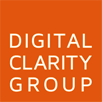No Joke: Sitecore is (finally) acquired (sort of)
It takes a lot of courage to announce anything, let alone an investment transaction worth more than $1 billion, on April Fools Day. But this one is serious: Stockholm-based private equity firm EQT has taken a “significant” majority interest in Sitecore, the Denmark-based content and experience management vendor.
A new “EUnicorn”
The deal values Sitecore at more than $1.1 billion (1 billion EUR; 7.5 billion Danish Kroner). While both parties declined to specify the extent of EQT’s stake, Sitecore CEO and co-founder Michael Seifert referred to a “partnership and acquisition.” Our translation: EQT has bought out the previous 40% owner, California-based equity firm TCV, and has also taken a big chunk of the remaining 60%. Both sides stressed that the founders and the current management team will be motivated to remain on board by “significant” ongoing equity stakes, but you can bet the Akvavit will be flowing freely in Copenhagen tonight.
Still not married
Speaking of bets. If you added up all of the Jacksons ($20 bills), drinks, and dinners that have been wagered in the last ten years over when and by whom Sitecore would be acquired, it might exceed the GNP of California (Sitecore’s NA HQ).
The smart money was always on Microsoft, given Sitecore’s long-held reputation as the leading .NET-based web content management (WCM) solution. In fact, Sitecore’s founders should raise several glasses of grog to Microsoft for hilariously insisting that SharePoint was a capable WCM, rather than acquiring Sitecore for a relative pittance several years ago.
(Of course, this investment by a private equity firm in no way precludes a future sale to Microsoft, or another technology vendor. Let the betting continue!)
From Sitecore to “Insight-core”
Like many WCM vendors, Sitecore has spent the last decade trying to transition to something like customer experience management (CEM). The company’s always-impressive engineers developed one of the first digital marketing extensions for a content management core – originally called the Online Marketing Suite (OMS), it’s now morphed into the “Experience Platform.”
The point is basically to aggregate and store customer insights (aka data) and then make it actionable in the form of (relatively) automated decisions about what content/offers/site features should be delivered to a particular customer (or segment). Sitecore’s current tagline for this kind of targeted content is “context marketing.”
Chasing Adobe
It’s a crucial part of Sitecore’s burning desire to be considered as a solid alternative to Adobe’s “Marketing Cloud.” But there’s one problem: Very (very) few clients use Sitecore’s digital marketing tools. In fact, it’s fair to say that while Adobe largely sells tools to marketers who need to distribute content, Sitecore sells mostly to content managers who have some inkling that maybe they should get better at marketing.
(To be clear, that doesn’t mean Adobe is somehow superior. As we’ve often noted (e.g., here, here, and here), effective customer experience management has to extend beyond marketing to a holistic company effort.)
Sitecore and EQT need to tackle three “Cs”
In an interview published today (in Danish), EQT said additional funds are readily available to fuel acquisitions and future growth at Sitecore. In the short to medium term, we think there are three key issues:
- Commerce. In a break with their tradition of internal development, Sitecore acquired the old Microsoft Commerce Server in late 2013. (See our webinar analysis here.) At that time, the product was a rather outdated and inadequate commerce solution. Sitecore has invested development resources, but it’s high time for them to release a revised and vastly improved version, along with the requisite marketing, sales, and support. That would finally give Sitecore a second arrow in the quiver as a stand-alone product sale, along with the core content management offering.
- Cloud. Given their demonstrable technology chops, Sitecore has been uncharacteristically slow to support cloud services. (To be fair, it’s partially due to their large percentage of relatively conservative mid-market customers.) The company needs to invest in a solid cloud capability, and quickly, before their limitations become a painful competitive disadvantage.
- Consumption-based pricing. Sitecore is in the midst of a shift to a recurring revenue model and a major new consumption-based pricing scheme. The former shift always creates a gap in cash flow and revenue recognition that needs to be addressed to sustain outlays. The shift to a consumption-based model could represent a more significant threat. We believe there are serious questions about whether it is at all appropriate for Sitecore.
This point is addressed in detail by my colleague’s Scott Liewehr in his typically insightful and opinionated video commentary (linked here and embedded below). Note that Sitecore has always prided itself on its R&D investment. For some time this was 50% of revenue, more recently it’s around 35%. This shift to recurring revenue and/or consumption-based pricing would make this level of R&D impossible – in the absence of additional outside investment. It seems likely that the previous private equity investor, TCV, wasn’t willing to provide that bridge, while EQT is. (Unless, of course, they just don’t realize what they’re getting into.)
What does it mean for customers and prospects?
This isn’t a trivial question, but in the interest of time and length, we’ll give the short answer: The acquisition should mean that very little changes for Sitecore customers. (Changes negatively, that is.) As we’ve noted, acquisitions are a fact of life in the software industry. Broadly speaking, an acquisition by another vendor always harbors the possibility that they will sunset the acquired product(s) and aim to move customers to another solution. In contrast, private equity firms are looking to increase the value of their investment for a future sale, and generally provide the resources (in funding, development, management skills) to make it happen.
On the other hand, EQT could make the wrong choices or intervene in harmful ways. Stay tuned for future updates on any changes to the leadership team and/or strategic direction at Sitecore. If you have specific questions about how the acquisition impacts your project or company, please contact us for a no-cost telephone inquiry.








